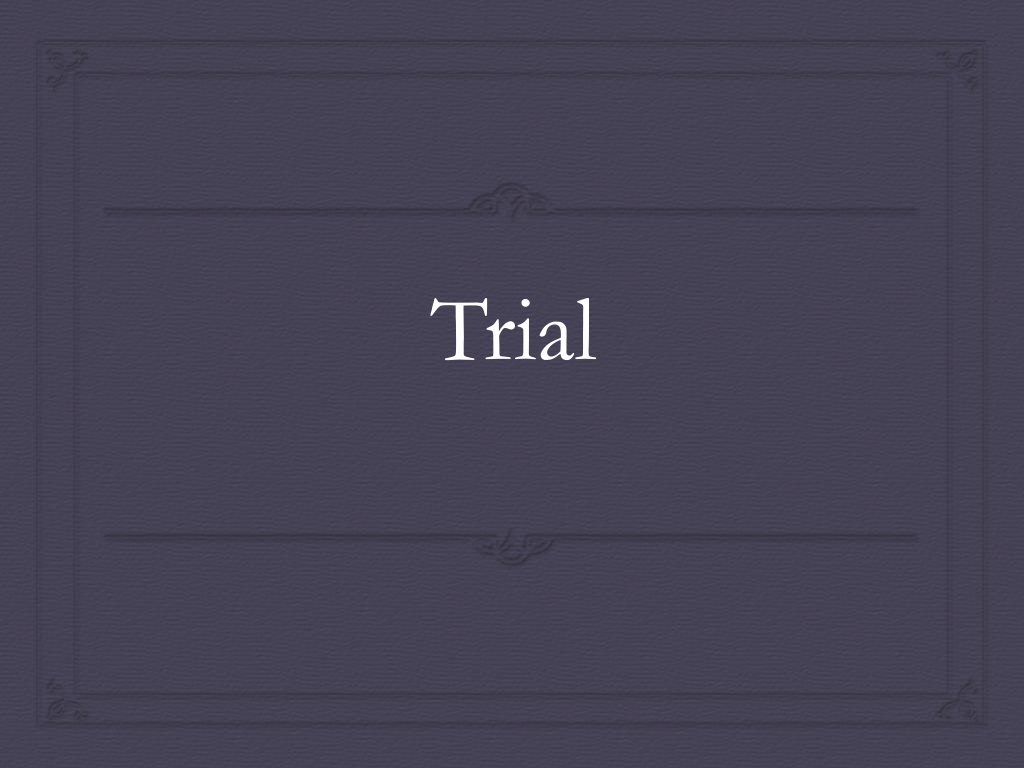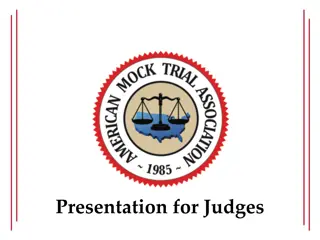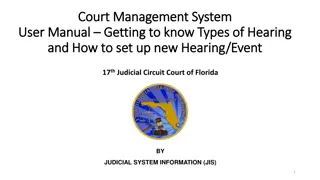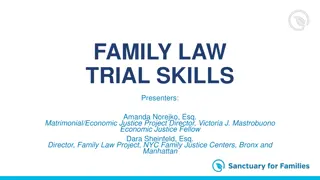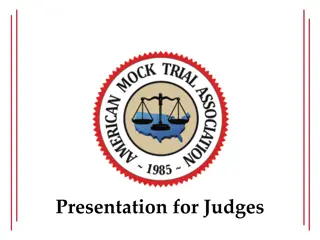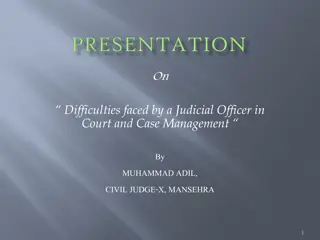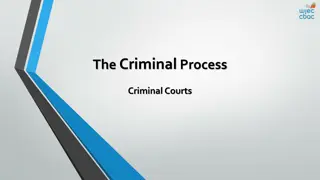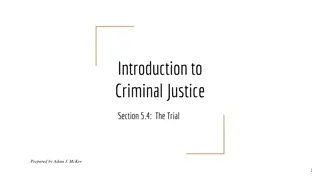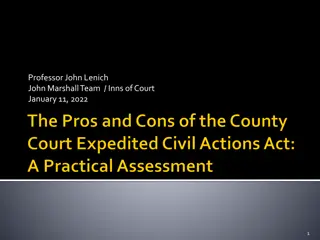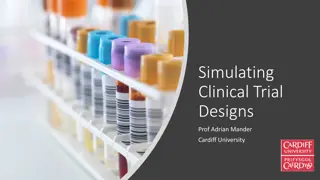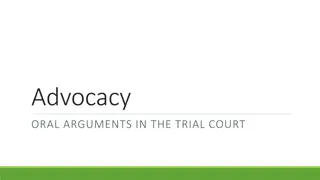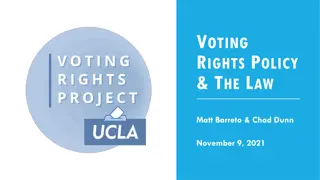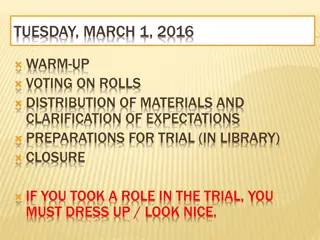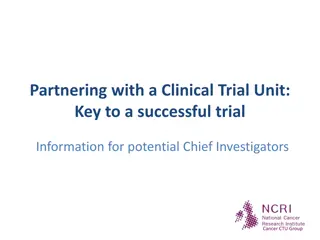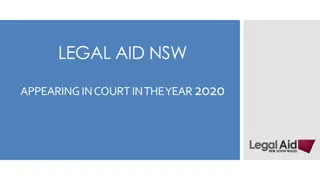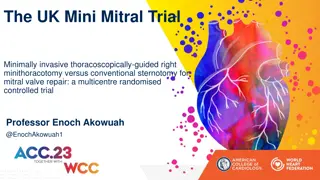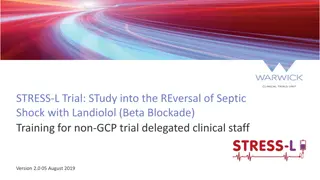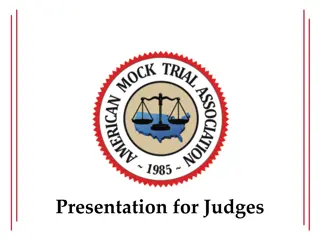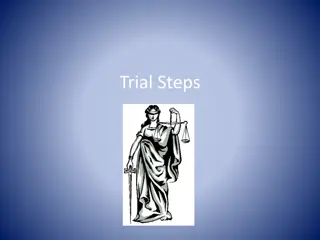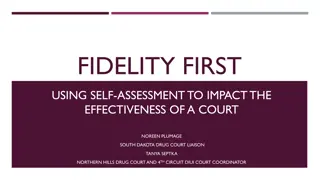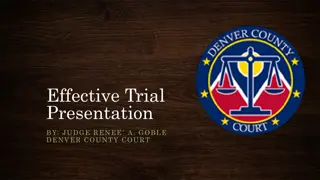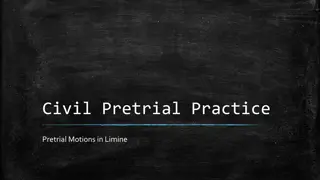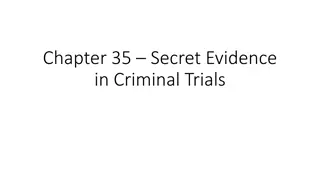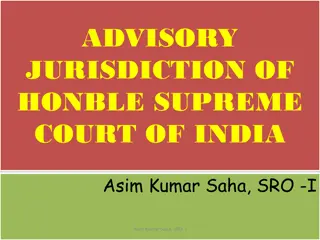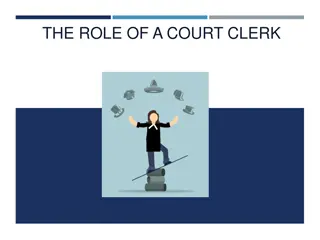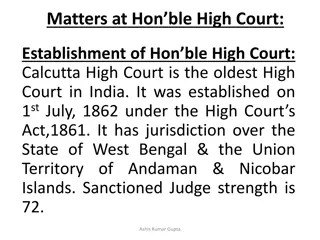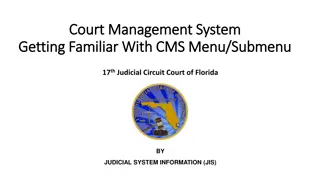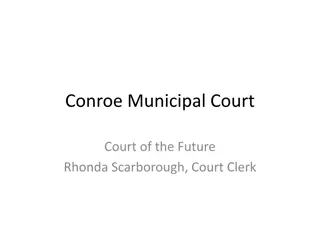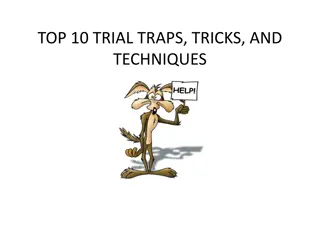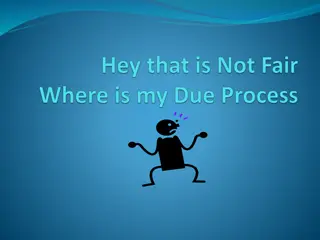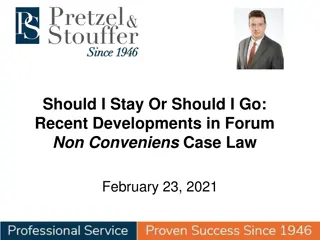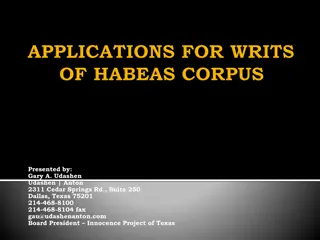Understanding the Trial Process in Court
Learn about the various stages of a trial, from pre-trial hearings to jury deliberations, including the roles of judges, attorneys, and witnesses. Explore concepts such as evidence presentation, impeachment, courtroom placement, scripted mock trials, and debriefing sessions. Dive into the differences between opening and closing arguments, cross-examination and direct examination, and evaluate the fairness of jury decisions. Engage in an assignment to analyze the best and worst facts for both the defense and prosecution in a case.
Download Presentation

Please find below an Image/Link to download the presentation.
The content on the website is provided AS IS for your information and personal use only. It may not be sold, licensed, or shared on other websites without obtaining consent from the author. Download presentation by click this link. If you encounter any issues during the download, it is possible that the publisher has removed the file from their server.
E N D
Presentation Transcript
Trial: broken down Pre-Trial hearings: Judge makes decisions on various motions Opening statement: attorneys tell the story of the case. No argument here. Direct Examination: Opportunity for witnesses to tell their side of the story. Cross Examination: Opposing counsel tries to poke holes in witness s testimony. Closing Argument: Both attorneys argue the law at the end of the trial. Jury Deliberation: The jury reviews the law,, and determines which side wins the case.
Evidence and Impeachment Evidence: Attorneys may offer evidence through witnesses. An attorney must offer evidence BEFORE showing the evidence to the jury. Impeachment: If a witness is inconsistent or lies, attorneys may impeach them with prior testimony.
Debrief What is the difference between opening and closing? What is the difference between cross and direct? How did jury deliberations go? Did the jury reach a fair result?
Assignment Assignment: read your packet! Create a list of 5 best facts and 5 worst facts for both Defense and Prosecution.
